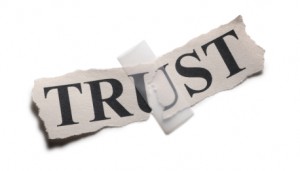I Said I Was Sorry!
Why does the apology fall flat?
Your heart was in the right place and your intention was pure…what went wrong?
Apology is an art form, one which can be learned. There are some fundamental ingredients which form the basis of a genuine, non-defensive, responsible apology.
What Makes For A Good Apology?:
- Make it personal. You need to say, “I wronged you, I did this to you”.
- Make it specific. Don’t just say, “I’m sorry”. You need to capture exactly what you are sorry for.
- Take responsibility for the damage you caused. For an apology to take hold you need to acknowledge your role.
- Make it heartfelt. Polished, self-serving words of remorse are widely off target.
- Apologize repeatedly. For deeper hurts you may need to continue to address your sorrow and acknowledge your impact more than once.
Keep It Clean!
I see apologies backfire in my practice when the words are qualified and expressed with “buts”.
When you try to pass off your misconduct as a mistake, an insignificant event, an understandable reaction to the others misbehaviour, you are likely to cause more damage.
A clean, effective apology contains all the elements listed above. No need to be polished, with the perfect word choice and timing. Apology is a deeply humbling process and if the right intention is there you can bumble around. Your partner can tell when your heart is open and your defenses are not in full force.
IMAGO Amends Dialogue
This is the process I use with couples when they are ready to take responsibility for the hurt they have caused and are prepared to acknowledge and experience the pain of their partner.
The following stems are meant to be finished by the person who seeks to make amends and responded to within the structured Dialogue Process:
- What I want to make amends for is…..I was wrong when I…
- You did not deserve this and how I imagine you may have felt…
- What I wish I had done differently is…
- This is what you deserved then, deserve now and deserve in the future and it is my intention to do it that way. I am sorry that I did that and hurt you.
- Where that behaviour that hurt you comes from in my childhood is… (this is not meant to excuse the behaviour)
- The old decision that made me engage in that behaviour is….
- Now that I am an adult, a new decision that I can make is….
This is one important step in the complex healing process when trust has been broken. The formality and ritual of the dialogue is essential and allows for both parties to stay present for all the emotions that arise.
Tags: Apology, Imago Dialogue, Relationship
This entry was posted on Monday, November 8th, 2010 at 8:00 AM and is filed under IMAGO and Relationships. You can follow any responses to this entry through the RSS 2.0 feed. You can leave a response, or trackback from your own site.




